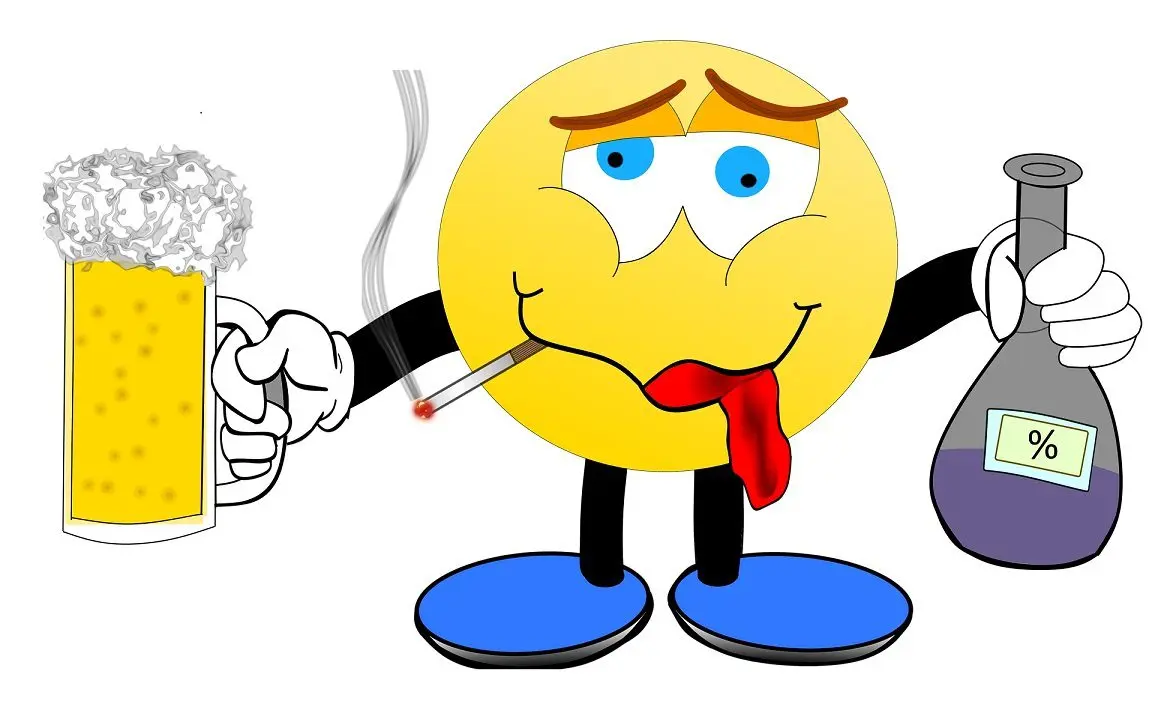Intoxication without alcohol is a rare phenomenon, but it should not be classified as a myth. Doctors have already recorded several dozen cases when ethanol is produced in the human body, regardless of the intake of alcoholic beverages. The disease was called “autobrewery syndrome” (English auto brewery syndrome).
What is autobrewery syndrome
Scientists suggest that the disease has existed for a long time, only for many years no one took it seriously. For the first time, autobrewery syndrome was discussed in the 1950s, when several cases of chronic intoxication against the background of complete sobriety were recorded in Japan at once. The most famous patient was the Japanese businessman Kozo Ohishi, who had long been considered an alcoholic. Since then, scientists have studied the disease well and learned how to treat it, but the causes of the pathology are still unknown.
The syndrome manifests itself in an increased content of ethanol in the body, regardless of the use of alcoholic beverages. A person shows all the signs of intoxication, including slurred speech, disorientation and dizziness. Such people should not be envied, since the consequences of such conditions are quite severe – problems at work, a complete ban on driving a car, a hangover and liver damage.
The cause of a drunken state without alcohol is bacteria that cause an active fermentation process in the intestines. The production of a small amount of ethanol by the digestive system is normal for a healthy person, but the pathogenic activity of bacteria leads to an excessive increase in the level of alcohol in the blood. Scientists have identified a whole family of fungi that cause the disease, including Saccharomyces cerevisiae, Klebsiella neumonia, and Enterococcus faecium.
In the event of a violation of the intestinal microflora, the strains are activated and create colonies of microorganisms. Ingestion of carbohydrate-rich foods triggers a process similar to brewing — bacteria break down the sugar and produce an abnormal amount of alcohol. It is far from always possible to diagnose a disease – the human microbiome is poorly understood, and the consequences of abnormal bacterial activity are difficult to predict.
For example, against the backdrop of full health, the Japanese entrepreneur Kozo Ohishi noticed that he was getting drunk after dinner with a lot of bread and potatoes, and the American Charles Swaart had a similar effect caused by spaghetti. However, not everyone notices malaise. There have been cases when patients suffering from autobrewery syndrome complained of chronic headache and fatigue, but did not show external signs of intoxication.

Among the factors contributing to the violation of intestinal fermentation, physicians call:
- long-term use of antibiotics;
- a weakened immune system;
- surgical removal of part of the intestine;
- liver pathology associated with obesity;
- diabetes;
- intestinal obstruction;
- Crohn’s disease.
Sometimes doctors cannot identify the causes of pathogenic growth of fungi, but doctors agree on one thing – against the background of strong immunity and normal functioning of the gastrointestinal tract, as a rule, there are no abnormalities in bacterial activity.
Diagnosis and treatment
Intestinal fermentation syndrome requires treatment, as chronic alcohol intoxication can cause fatty liver embolism. Side effects such as nausea, belching, chronic fatigue, hangovers, depression and low productivity at work bring a lot of trouble to patients.
Diagnosing the disease is quite difficult. Physicians first of all exclude the secret use of alcohol, and then conduct a complete examination, including bacterial cultures, endoscopy and carbohydrate tests.
Depending on the patient’s condition, doctors:
- provide emergency care for severe alcohol intoxication;
- carry out drug therapy with antibacterial agents;
- prescribed a strict low-carbohydrate diet.
In the treatment of autobrewery syndrome, diet comes to the fore. Sugar is a favorable environment for the vital activity of fungi, therefore, first of all, the patient must exclude flour products and sweets. You should reduce the consumption of cereals, bread, potatoes, fruits. If possible, during the period of drug therapy, doctors recommend completely eliminating carbohydrates and adhering to a protein diet. To avoid recurrence, dietary restrictions will have to be adhered to for life.
Autobrewery syndrome as a rare phenomenon attracts public attention, however, in practice, the disease occurs in isolated cases and, with timely diagnosis, is successfully treated with antifungal drugs.









